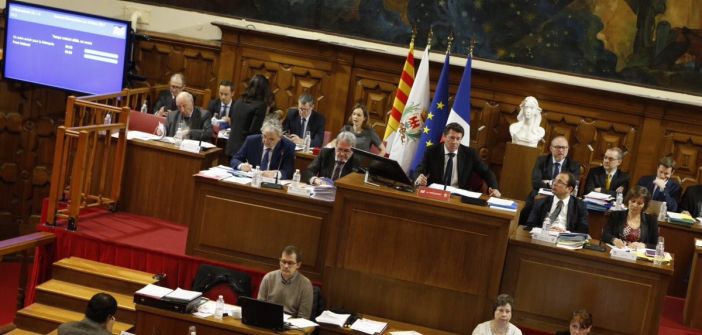The sessions of the Metropolitan Council that must deliberate on budgetary questions could be titled with the lyrics of a hit song (and what a hit) from the ’60s, “Comme d’habitude” by Claude François, which later became a worldwide hit in the American version by Frank ‘the voice’ Sinatra, “My Way”.
Indeed, the refrain is always the same: Christian Estrosi praising an enlightened policy that will elevate the Nice metropolis into the global olympus of territories (for him, nothing less than excellence is achieved there) and an opposition (ideologically divided but united in criticism) for whom nothing is ever going in the right direction.
It is true that between the notion that any spending financed by borrowing is not a debt but an investment (how wonderful it would be if that were true!) and others for whom debt equates to bankruptcy, finding a middle ground is not easy.
In such cases, one cannot resort to the magic formula of the “middle ground” because, to place the cursor in the right spot, one must first answer the question: but where is the “right middle”?
This question becomes superfluous when there is an overwhelming majority, allowing the opposition to animate the debate with their arguments, vote against or abstain, but ultimately always end up losing.
Then there are the numbers, as Pythagoras reminds us that “everything is number,” even if too often, they are made to say what we want them to.
And here are those of the 2017 preliminary budget (the Metropolis is expanding with new competencies, including managing the Port of Nice, taking over the Carros CFA, and some social responsibilities):
1,593 million euros budget including 381 million in equipment expenditures (62% for transport, notably line 2 of the tram, in fact, 114 million for other chapters), 1125 million euros of income with constant taxation.
Christian Estrosi and Philippe Pradal do not hesitate to highlight the reduction of state allocations and that favorable rates encourage borrowing: operating cost management allows investment to be directed to make the territory more “attractive, dynamic, and innovative”.
But the debt stock increases to 1243 million euros, a warning level for its repayment (if one sets aside Philippe Pradal’s risky considerations, for which future generations are expected to bear part of the payment for investments made in the present and of which they are the beneficiaries).
In this context, it will be easier to appeal to the generosity of the PACA Region, taking advantage of the fact that its president is none other than the same as that of the Metropolis, who points out that “the total amount of subsidies from the Region is 128 million euros in 2016.” One can imagine that this practice will not stop along the way, at least throughout this term.
A few additional files that deserve comment:
The Semiacs company, which manages public parking and had been noted for various incidents and questionable management, becomes a municipal management entity. There is hope that it will return to good administrative practices and move away from the personal favoritism that characterized it.
The Training and Apprenticeship Center, with more than 1200 young people, leaves the town of Carros and joins the Metropolis. A decision that has rubbed Marie-Christine Arnautu the wrong way, who sees in this decision an act of favoritism.
In fact, it will be the Region, responsible for training policies, that will provide the funding.
Trans-border cooperation continues with the Principality of Monaco and the Italian regions and provinces within the framework of the ALCOTRA program. Numerous projects have been considered, and files will be submitted to obtain funding provided by the European Union for the period 2014-2020, funded up to 85%.
Finally, projects and programs have been deliberated within the framework of infrastructure improvements: the renovation of Nice-Riquier station (making it accessible and increasing the length of platforms), the connection of RM 6202 bis to the A8, and the duplication of the Villeneuve-Loubet A8 exit.
A key point of Christian Estrosi’s long-term strategy, the Eco-Valley project will be supported by a PLU whose debate is ongoing and, in addition to tram line 2, by line 3 that will reach Allianz Riviera/Ikea. An advantage, very useful for the economic development and employment objectives of this territory, which calls on international investors in a highly competitive context.
In the same direction goes the change of status of Team Côte d’Azur, fallen, like other economic promotion agencies, into the Region’s hands (within the framework of its new competencies) as well as the Metropolis NCA and the Sophia-Antipolis Urban Community (CASA). Thus, exit the Department of Alpes-Maritimes, new governance, and new president: Christian Estrosi himself!


